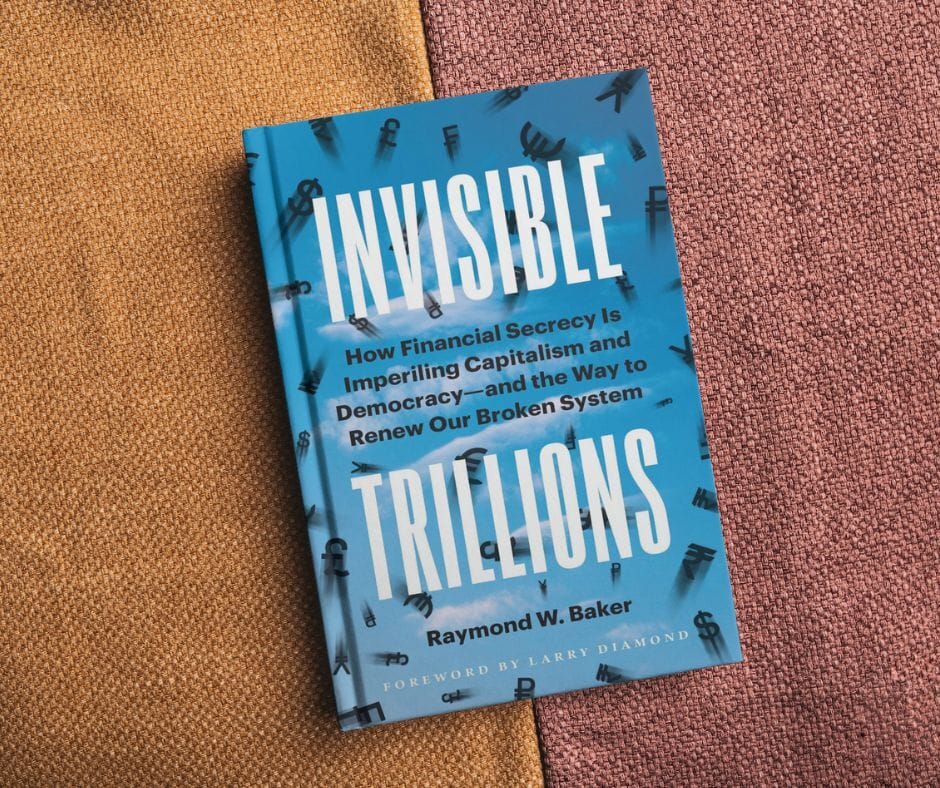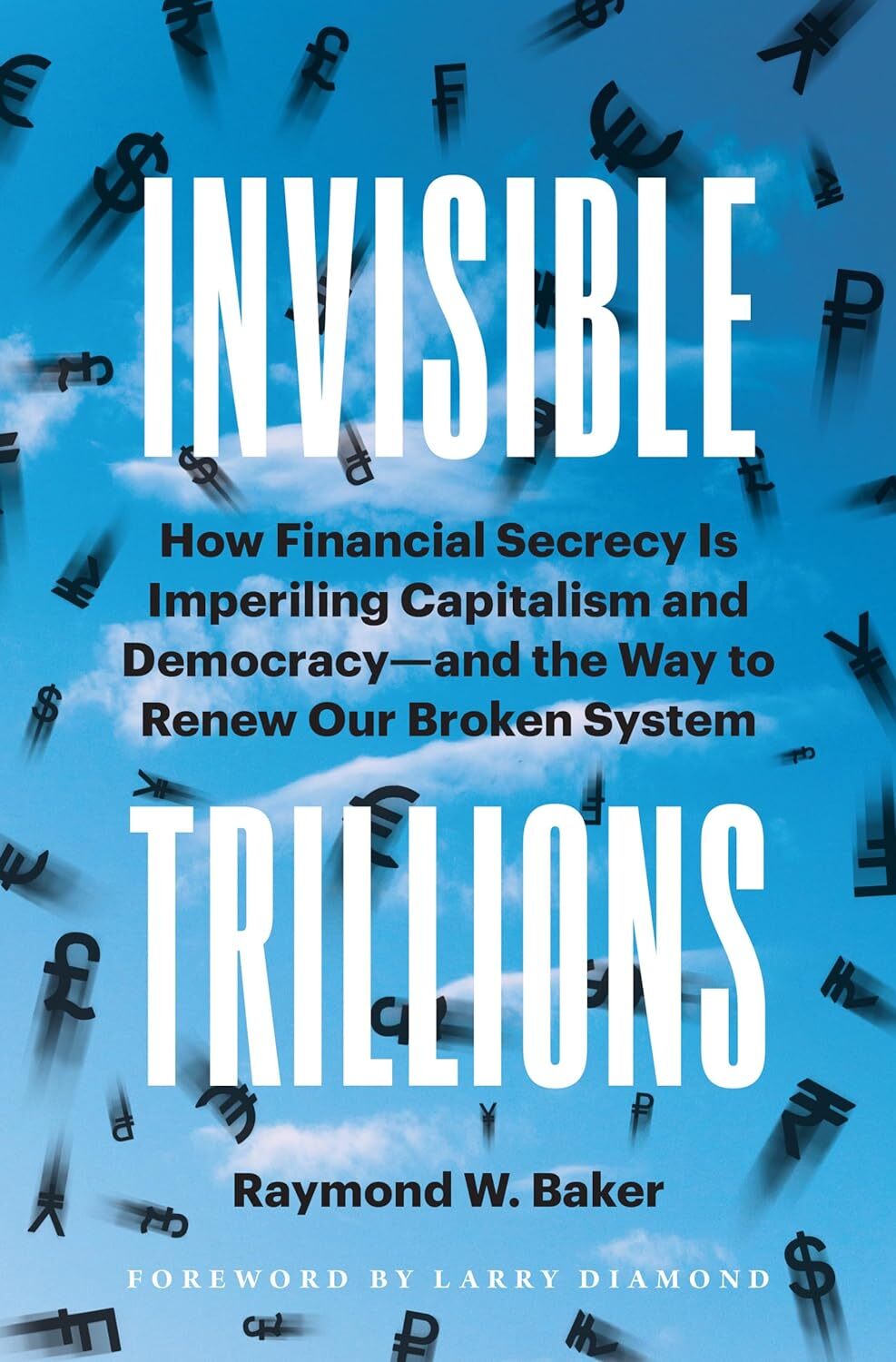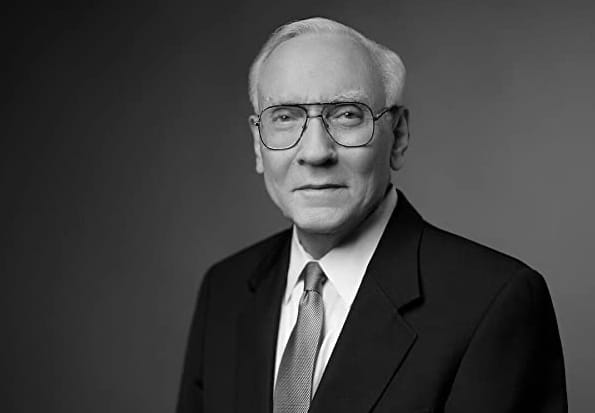
I didn’t go searching this book out - it came up as a suggestion on my Everand account (formerly Scribd). Everand knows I like nonfiction with a bent for history - in Everand you can “save” a book to read later, and I do have a few history of economics books on my saved list, so this suggestion wasn’t out of left field. It looked interesting enough that I started to skim through it to learn more (I wasn’t exactly sure what to expect from this book, even with its expansive subtitle).
Once I started reading I was hooked and read it all the way through. This is a concise book on a deep topic.
The author of this book, Raymond W. Baker, is an American businessman. He is a 1957 graduate of Georgia Tech, with an MBA from the Harvard Business School (1960). He did business in a number of different countries before switching things up and becoming an advisor on trade and finance to the governments of several developing nations. He is not, at first blush, the person who you would think would be writing this book. But then again, he is also the founder of Global Financial Integrity, a Washington, DC think tank focused on curtailing illicit financial flows, the negative impacts of which he has seen close up. It is his concern with these illicit financial flows that has led to has serious concerns about the impact of financial secrecy on American democracy.
Intrigued? On to the book review.
Invisible Trillions: How Financial Secrecy Is Imperiling Capitalism and Democracy and the Way to Renew Our Broken System is a book length essay on what is rotten at the center of modern capitalism. Baker draws on his decades of experience to show how secrecy has become as important for corporations as profits used to be, and how this undermines the rule of law, democracy, and free enterprise.
By “secrecy” the author means financial secrecy, and the worldwide system of tax havens, shell companies, anonymous trusts, fake foundations, and new digital technologies that has grown up over the years since World War II to protect that secrecy. That system started as a way to facilitate free trade. The goal was to regrow economies around the world that had been devastated by the war, and to smooth the economic transition of new countries emerging during the demise of the global empires in the post war era.
Baker points out a couple of times in the book that he is not an anti-capitalist nor is he a fan of socialism. The problem, he says, is not capitalism per se. The problem he sees is this system of secrecy, which is pulling capitalism away from democracy, increasing inequality and destroying the democratic-capitalist system that has brought economic growth and prosperity to millions over the last seventy years.
Baker argues that the financial secrecy system, which was built to support legitimate monetary flows, today facilitates corruption, crime, terrorism, inequality, and environmental degradation. He estimates that half of all global economic activity is hidden from public scrutiny and taxation through the use of these secrecy tools. He also documents how the US is far and away the biggest user and beneficiary of this system of secrecy.
His marshalling of facts propels him to his convincing, and actually frightening conclusion. Today, Baker contends, this system of financial secrecy no longer supports Western democracies, but in fact it erodes the social contract between citizens and governments and threatens the stability and sustainability of the democratic-capitalist system.
But Baker’s book doesn’t just outline the problem, it also offers solutions.
What he proposes is an end to monetary secrecy. The steps include a series of reforms at the national and international level, such as strengthening anti-money laundering laws, requiring beneficial ownership disclosure, enhancing corporate accountability, and creating a global tax body. He also calls for a renewed commitment to the values of transparency, accountability, and integrity, which are essential for the functioning of democracy and free enterprise.

Invisible Trillions by Raymond Baker is published by Berrett-Koehler Publishers
Baker writes with clarity, authority, and passion. Which is why, after describing what appears to be an enormous problem, his proposed solutions seemed somehow a let-down. A let-down in that the legal reforms will likely not come quickly, as any attempt at reform will face off against entrenched interests. And the call for “renewed commitment” to ethics seems somewhat naive.
What I’m left to hope is that it’s me who is naive, and Baker, with his experience and resources, is on to something that can lead to reform.
RATING: Four Stars ⭐⭐⭐⭐
RATING COMMENTS: Invisible Trillions is a timely and important book for anyone interested in the problems of our modern system of capitalism, its lack of transparency, its embrace of secrecy, and, above all, the challenges it poses to democracy itself.
See What Others Think
Centre for the Study of Corruption (University of Sussex): REVIEW: Invisible Trillions by Raymond Baker
Title: Invisible Trillions: How Financial Secrecy Is Imperiling Capitalism and Democracy and the Way to Renew Our Broken System
Author: Raymond W. Baker
Publisher: Berrett-Koehler Publishers
Publish Date: Available in ebook, audiobook and hard cover editions from December 12, 2022
ISBN-13 (ebook): 9781523003044
Publisher’s List Price: $29.95

